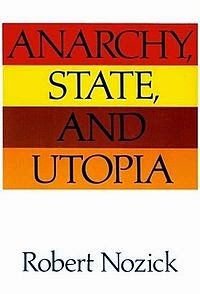It seems
like the writers over at Salon.com are desperate for something to whine and
complain about. This article, entitled the 1 Percent’s Loathsome Libertarian Scheme: Why We Despise the New Scalping Economy, takes issue with a new application called ReservationHop which
makes reservations at restaurants and then auctions them off to the highest
bidder. According to the author of the article, Andrew Leonard, this
application discriminates against poor people and creates “market-based class stratification”.
Although I fail to see how ReservationHop is uniquely libertarian, (as
suggested in the article title) I believe it provides a useful service that
will generally make booking reservations more efficient. Not only is this
application a useful tool in that respect, but a portion of the revenue being made is given to the restaurants themselves. There’s really nothing at all for
Salon.com to complain about. Regardless, they found a way to demonize the
creators of this application. therefore, I feel like I should defend them.
Leonard
writes,
“I am pretty sure I don’t want to live in a society where every possible interaction with my fellow human being is up for auction at the right price point.”
Nor will you. This is just a
slippery slope fallacy. Applications such as ReservationHop are fulfilling an
obvious need by selling sought-after restaurant reservations to those who are
willing to pay for them. It makes sense that some restaurants apply the pricing
system for reservations if they are very popular. Many popular restaurants do
not have available space for everyone who wishes to eat there—especially at
peak hours. Since there is a greater demand for reservations than restaurants
are able to supply, those who can afford to should have the option of purchasing
their reservations. This is just an efficient way of allocating the few
available tables to those who want them the most. This dystopian nightmare Leonard
tries to portray where “every possible interaction with your fellow human
beings is up for auction” is nonsense. He then writes,
“Even when they are solving a problem, there’s a whiff of parasitism. What was once clear becomes muddy. When the answer to the question of why we can’t find a reservation available at our favourite restaurant is because someone unaffiliated with the restaurant has figured out a way to profit from our demand that just feels yucky.”
Ever notice that what a normal
person would consider rational and innovative behaviour, socialists call
parasitism? That’s probably why socialist utopias throughout history have been so prosperous in comparison to those wicked capitalists, right guys?
The arguments Salon.com presents
against ReservationHop come crumbling down once they are exposed to the light
of scrutiny. Chances are, the reservations being auctioned off on
ReservationHop are only at the most expensive, high-status restaurants—the kinds of places you have to bribe the doorman just to get into. I doubt that
any sane person would bother to sell, let alone purchase fake reservations at a
Denny’s, McDonalds, or Pizza Hut. It just wouldn’t make sense to auction off
reservations unless the restaurant in question was near-impossible to get into
otherwise. The vast majority of restaurants are not packed on a regular basis
so I highly doubt that ReservationHop will have any noticeable impact on the
way most people make reservations. Mr. Leonard will still be able to eat at his
favourite restaurant as easily as before.
The great thing about ReservationHop
and other applications like it is that they tap into a previously unsatisfied
demand. The creator of these applications clearly saw something that was
inefficient with the way restaurants took reservations, so he created a service
that fixed it. Not only does ReservationHop solve the problem of getting
reservations at sought-after restaurants, but it generates revenue and even
shares its profits with the restaurants themselves. It’s win-win scenario for
everyone. If this is what liberals call “parasitism” then power to the
parasites!
“What’s happening with the new scalping apps is not democratization. It’s the exact opposite—it’s market-based class stratification.”
Horseshit. ReservationHop is no more
“class stratification” than a grocery store that charges an extra nickel for
plastic bags. I think it’s fair to say that if a poor person can’t afford to spend
$6 for a reservation, they probably should not be eating at restaurants in the
first place. When you live in a world with a scarce amount of resources, you
should expect to compete with others for those resources. Reservations of
course are no exception. Even if applications such as ReservationHop did not
exist, we would still expect to see people competing for reservations at fancy
restaurants. For instance, if you wanted to make a reservation at some place,
you would have to phone them days, or even weeks in advance to ensure you get
the table you want at the time you want. Even then, there was no guarantee that
you would get the reservation you wanted since someone else could have made the
very same reservation before you. Now, instead of wasting one’s time and energy
fighting for a reservation, one can simply pay a small fee and your reservation
is guaranteed. As you can see, people have competed for reservations before, ReservationHop
just found a way to allocate them efficiently.
Leave it to the misguided and unpleasant writers over at
Salon.com to find fault with something that will generally benefit people. Then
again, if anything gives individuals more free choice, it is heresy in the eyes
of collectivists. I think this application is a great idea and I will be
interested to hear of any future developments on it.










